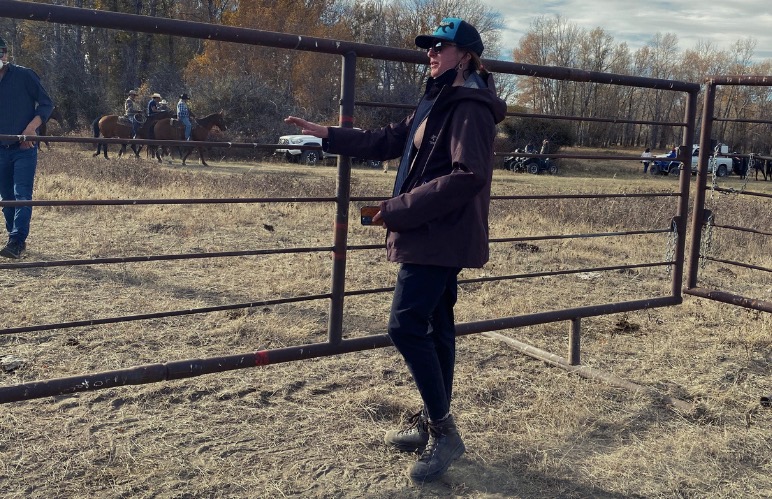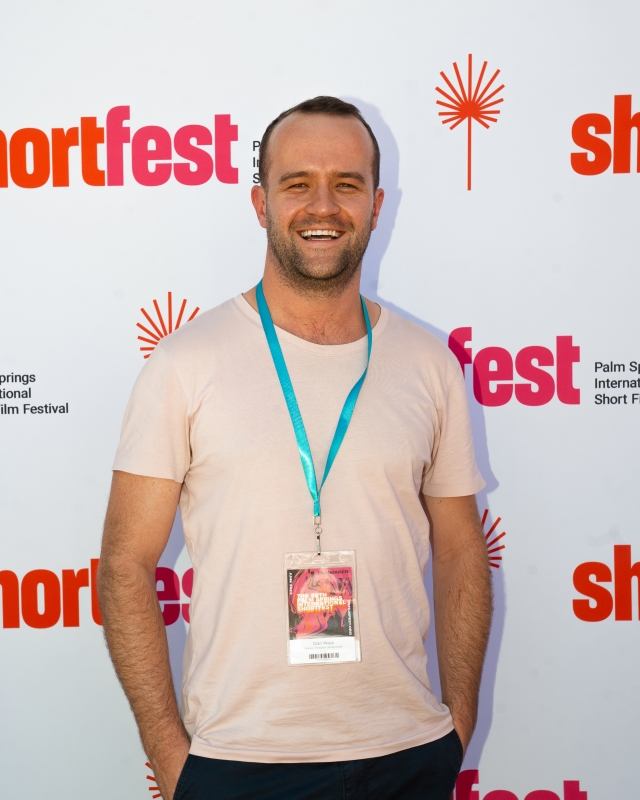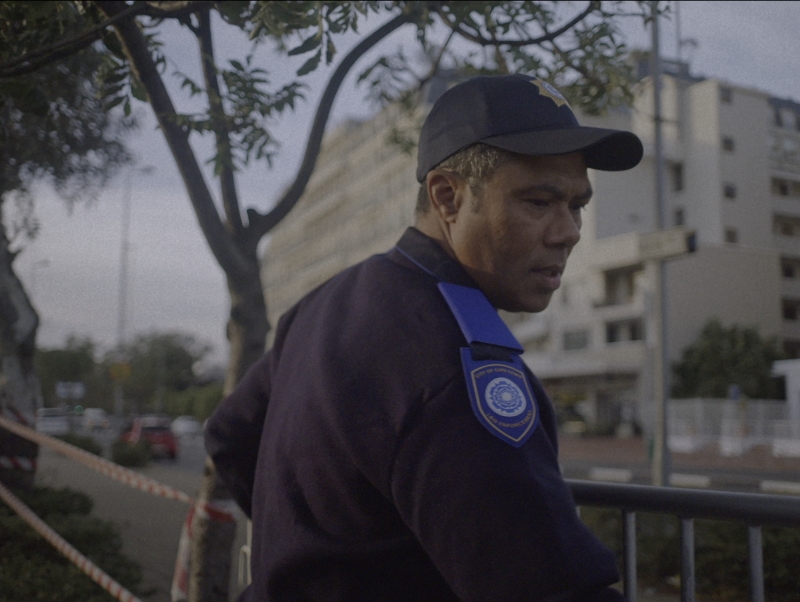|
|
||
|
Pro Tools
FILMFESTIVALS | 24/7 world wide coverageWelcome ! Enjoy the best of both worlds: Film & Festival News, exploring the best of the film festivals community. Launched in 1995, relentlessly connecting films to festivals, documenting and promoting festivals worldwide. Working on an upgrade soon. For collaboration, editorial contributions, or publicity, please send us an email here. User login |
Interview with Ole Christian Madsen on 'Superclassico' (2012)
‘Superclassico’ (2011) by Danish director Ole Christian Madsen was one of the best films I’ve seen of 2011. A relentlessly bittersweet romantic comedy set in Buenos Aires, Christian (played by Anders Berthelsen) is a middle-aged Danish wine seller whose wife leaves him for a younger man. Christian’s wife, Anna (Paprika Steen), is a soccer agent working in Buenos Aires who is tired of her routine married life with Christian and opts for an exciting existence with her Latin Lover, Argentina’s hottest football star Juan Diaz (Sebastian Estevanez). Christian travels with their fifteen year-old son, Oscar, to Buenos Aires to get his wife back and discovers it will be harder than he thought; in the meantime, however, he discovers the beauties and horrors of the kaleidoscopic city and its wonderful wine. When it comes to exceptional cinema that towers above most films flooding the industry today, I always say ‘leave it to the Danes’. There is definitely a magic potion for superior storytelling and ‘Superclassico’ is yet another triumph for the Danish film hallmark. Recently, Ole Christian Madsen stood on the jury at the 53rd Thessaloniki Film Festival and I interviewed him about the festival, independent film and 'Superclassico'. Here is what he had to say…
ME: You recently attended the 53rd Thessaloniki Film Festival as a jury member. Many people around the world haven’t heard of this festival and yet it is one of the oldest and most respected in the independent film community; and still in the face of one of Greece’s hardest economic crises ever it continues to thrive and go strong. What were your impressions of this year’s TIFF? OLE: I’ve visited TIFF three times, and other times some of my films have been at TIFF without me being present. My overall impression is that the soul of the festival is indeed intact, but the festival is struggling under very difficult economical conditions. TIFF is still the most important and prestigious festival in the Balkan region but it needs a certain volume and level of films in order to keep that position. So far, so good – and let’s hope for financial support in years to come so the festival can reach to fulfill it’s own ambitions and still be this warmhearted wonderful place to visit. ME: Can you speak about some of the variety of the films you viewed in competition this year at TIFF and despite their differences was there an underlying common theme in these films that you could detect? OLE: TIFF is known for the variety of films in both competition and overall programming. I saw many good films, and I saw many films where the filmmakers were still searching for their language; interesting, touching, challenging ideas – that’s an interesting process to follow. A jury though has a tendency of rewarding the most complete films in the program. The competition is 1st and 2nd film and this is a difficult and challenging place to be as a filmmaker. Talented, yet not established, full of ideas, but less money to create your piece; many things have to be puzzled together in that process. One thing I noticed in the films was an insisting and sometimes profound dealing with children and family. Each time a child was a part of the story, it was protected, guarded, as a gift from heaven. Children were very important in the story, not only as a part of the family, but of society. I wonder if it’s a consequence of the low birthrate in Europe, and now, with the crisis, the impossibility of having a child. It’s too expensive. If you don’t have a job, how can you have a kid?... Or perhaps an overall consolidation of one value everybody can agree is important: Kids. It’s very interesting. Another interesting thing is the general idea of how a European arthouse film looks, how it’s tonally playing out, and what themes you’re dealing with. Somehow I’d like to invite to a discussion about this among younger directors. There’s a special kind of arthouse style and atmosphere (very little dialogue, very slow pace, keeping the character restraint almost all through the film, long wide-shots, very few cuts) that I feel should find new air to breath in. We have grand European masters that are excellent in this style (for me it has become a genre almost), but I do think that younger directors should look for other ways of telling their story as well. It seems to be a style and a form that was created 30-40 years ago, and is still the preferred festival-film. I feel reality has changed so much, human conditions of life has changed, the world is changing rapidly – it’s like the arthouse film has to change more rapidly as well. When you spend several years doing a movie, you do want as many as possible people to watch it. If you watch ‘Holy Motors’ by Leo Carax, you suddenly have a new angle on this style. It’s personal, it’s challenging and yet, accessible for an audience. With the distribution-crisis in European films you need to think about these things. ME: Was it a difficult decision this year for the winners of the films or was it a very tough competition? OLE: It’s always difficult. A jury consists of different personalities with different taste and views on life. So, each jury member will fight for the film they think is the best, and hopefully the best argument will win. ME: I’d love to discuss your recent film, ‘Superclassico’. I finished Palm Springs Festival 2011 seeing your film and it was really the highlight of the festival for me. You went on to be on the Oscar Shortlist. What was the like and how has that changed your career as an independent filmmaker? OLE: Bringing ‘Superclassico’ to US was an amazing experience. It was so well received, so well reviewed and have had a great life there. I remember Palm Springs very well: It’s almost transcendent for a filmmaker when 1500 people are laughing simultaneous at what they see on the screen. ‘Superclassico’ is my first comedy, and realizing how audiences respond to the film made me want to make more comedy. Basically, you’re able to tell much tougher stories when you making them funny, you can be more harsh, more sarcastic, even more misanthropic… the humor will make the transition to the mind. It’s in Woody Allen’s (my big idol) comedies you see how harsh his view on life really is – not in his dramas. Being on the shortlist for the Oscars was of course helping the film a lot, and it also gave me some options for work in US, but it’s difficult to tell about in a short and precise version, so that has to wait. ME: I have been to Buenos Aires many times so I loved revisiting the beautiful city vicariously in your film! How hard was it to shoot entirely on location in Argentina? Did you have a lot of support from the Argentinians for this? OLE: It wasn’t hard at all shooting in Argentina. it was great. The crews are great, the soul of the Argentinians is great, the wine and steaks are amazing – so, no problem in shooting there. Only problem is the currency of the peso that is very unstable. Suddenly your money is worth less that you thought. We lost shooting days on that account. We didn’t have any financial support from Argentina. We brought the money. But we had co-producers and Argentinian help in many other ways. I only brought in 5 Danes + two actors for the film, the rest was local. ME: How have the Argentinians reacted to your film? OLE: Again, just great. I was a little nervous about it. I did a movie some years ago “Prague”, and actually a lot of Czechs reacted angry on it. In ‘Prague’ there was a lot of ‘Lost in Translation humor’, and they felt the film was making fun of Czech English-abilities, which wasn’t the case at all. But in Argentina I only experienced generous appreciation of the film. And you know, the film is about football, wine and a little tango – all great things. I really appreciate the Argentinian way of life. Without being an expert, and from what I know of it. ME: After I saw this film, I said, ‘leave it to the Danes!’ Can you tell us why the Danish make such great cinema? Directors like Lars Von Trier, Thomas Vinterberg, Susanne Bier, Nicolas Refn, Tobias Lindhorn and yourself, just take the film industry by storm. What is it about Danish filmmaking that speeds ahead in cinematic breakthroughs? It’s like a secret recipe they teach at the Danish Film Institute? OLE: There are several answers to that question, and it’s true there has been a sort of Danish wave the last 10 years. When I went to filmschool we were taught mostly about Structure, Character and Drama. We weren’t taught a lot of visuals or cinematography. It was always about the storytelling. It was deliberate: The filmschool wanted to break the technical dominion in moviemaking, the DP driven movies, and giving the power back to the director. We analyzed Bergman, Truffaut, Antonioni as well as ‘Pretty Woman’. Really, it’s very into an American tradition. So, the short version might be that we do what the new French wave did: We tell European stories with a classical approach to structure and storytelling. This gives us an easier access to the audience. At the same time we work on smaller budgets, which forces us to work more toward the essence of the story. This is good and bad at the same time. Danish movies are very rarely interesting from a visual point of view. There are more answers than this to your question, but this is one angle. ME: How did you get into directing? Did you always know you would be a director? OLE: I never felt I got into it, I’m still learning. I wanted this from when I was twelve years-old when I watched ‘The Godfather’ for the first time, and realized what a director could do. ME: Can you talk about your next project that involves a story about the Beatniks or is that top secret? OLE: It’s a story about some of the first beatniks of Europe. But, of course, the story and details are secret for now. ME: Any last impressions of TIFF you would like to tell people? Or any advice for all the indie filmmakers out there who would like to be in your shoes someday? OLE: I’m not sure good advices helps. Artists have a tendency of wanting to realize things themselves, like children. I know I want to. But one thing you could say, more as a practical advice: create communities, work with other creative people as much as you can, don’t’ be afraid to share, look for new ways of getting your art out to people, see yourself as a part of an infrastructure – then you’ll have an easier task in finding your direction.
Thank you Ole!
03.12.2012 | Vanessa McMahon's blog Cat. : Anders Berthelsen Anna Apostrophe Argentina Buenos Aires Christian Madsen English spelling Entertainment Entertainment Europe Holy Motors Interview with Ole Christian Madsen on 'Superclassico' (2012) Juan Diaz Lars Von Trier Latin Lover Leo Carax Linguistics Nicolas Refn Ole Christian Madsen Orthography Oscar Paprika Steen Prague Punctuation Sebastian Estevanez Superclassico Susanne Bier the 53rd Thessaloniki Film Festival the Oscar the Oscars Thomas Vinterberg Tobias Lindhorn Interviews
|
LinksThe Bulletin Board > The Bulletin Board Blog Following News Interview with IFTA Chairman (AFM)
Interview with Cannes Marche du Film Director
Filmfestivals.com dailies live coverage from > Live from India
Useful links for the indies: > Big files transfer
+ SUBSCRIBE to the weekly Newsletter Deals+ Special offers and discounts from filmfestivals.com Selected fun offers
> Bonus Casino
User imagesAbout Vanessa McMahonThe EditorUser contributions |



























 McMahon Vanessa
McMahon Vanessa 


